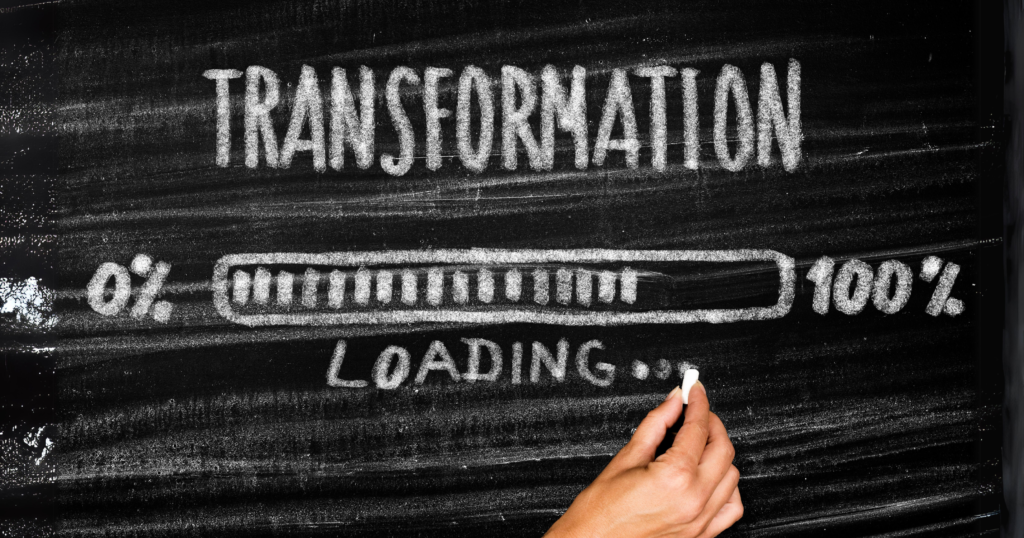Betrayal is a painful and traumatic experience that can shatter our world. The initial stage, known as stage one after betrayal, is marked by shock and disbelief. It is a time when our bodies and minds are overwhelmed, and our worldview is shattered. This intense shock triggers the body’s stress response, commonly known as the fight or flight response. It is a primal reaction that prepares us to either confront the threat or flee from it.
The neuroendocrinology of stress is at play during this stage. The body releases stress hormones such as cortisol and adrenaline, which increase heart rate, blood pressure, and energy levels. These physiological changes help us prepare to face the challenge that betrayal presents.
Mentally, it can be difficult to comprehend the magnitude of the betrayal we have experienced. Our thoughts may race, and we may find it hard to focus or make sense of what has happened. Emotionally, we feel lost, confused, and desperate for relief.
It is important to remember that shock is a natural response to betrayal. It is our body’s way of processing and coping with the trauma we have experienced. Understanding this stage can help us navigate the initial shock and take the first steps toward healing.
Understanding Stage One: The Set-Up Stage
In the aftermath of betrayal, we find ourselves in stage one – a pivotal phase that sets the groundwork for our healing journey. This stage is akin to a “set-up” stage, where we primarily rely on our physical and mental faculties, inadvertently neglecting our emotional and spiritual well-being. As a result, we become susceptible to the profound psychological toxic effects of betrayal.
We often find ourselves focusing solely on our thoughts and actions, disregarding the crucial significance of addressing our emotional and spiritual selves. This lopsided approach creates an imbalance within us, perpetuating our vulnerability to the impact of betrayal. To effectively cope with betrayal, it is imperative that we shift our perspective and prioritize the holistic aspects of our well-being.
Nurturing Emotional and Spiritual Well-being
During stage one, it’s essential to acknowledge and embrace our emotional and spiritual needs. When we invest time and effort into understanding and nurturing these aspects of ourselves, we create a harmonious balance that strengthens our resilience and fortitude.
“Embracing our emotional and spiritual well-being allows us to heal on a deeper level, transcending the pain of betrayal.”
By cultivating emotional well-being, we recognize and honor our feelings. This entails acknowledging the hurt, anger, and disbelief that accompany betrayal, while also allowing ourselves to experience and process these emotions authentically. Engaging in activities such as therapy, journaling, or participating in support groups can be immensely helpful in navigating the complex emotional landscape.
At the same time, nurturing our spiritual well-being facilitates a sense of inner peace and connection to something greater than ourselves. Engaging in practices such as meditation, mindfulness, or engaging with our faith or belief systems provides solace and cultivates strength from within.
Cultivating Balance and Resilience
To effectively cope with the psychological effects of betrayal, we must strive for balance and resilience across all aspects of our being. This includes nourishing our physical health through exercise, proper nutrition, and sufficient rest. Taking care of our bodies equips us with the physical strength and energy needed to embark on the healing journey.
Moreover, nurturing our mental well-being is crucial. This can involve seeking professional help, engaging in cognitive-behavioral therapy, or practicing techniques that promote positive thinking and self-compassion. By actively prioritizing our mental health, we develop the necessary tools to navigate the challenges and complexities of healing.
Lastly, dedicating time to indulge in activities that bring us joy, fulfillment, and a sense of purpose plays an integral role in bolstering our overall well-being. Engaging in hobbies, spending time with loved ones, or practicing self-care activities helps us maintain perspective and find moments of solace amidst the healing process.
Individually, these components may seem insignificant, but collectively they form the foundation upon which our healing journey thrives. Embracing the set-up stage empowers us to confront the psychological effects of betrayal head-on, embarking on a path of profound self-discovery and growth.
The Five Stages of Healing After Betrayal

After experiencing betrayal, individuals go through a transformative journey consisting of five predictable stages. Each stage presents unique challenges and opportunities for growth, ultimately leading to healing, rebirth, and developing a new worldview.
- Shock: The initial stage is characterized by overwhelming shock and disbelief. Physically, the body’s fight or flight response is activated, releasing stress hormones that can affect our neuroendocrinology. Mentally, it can be difficult to comprehend the magnitude of the betrayal, and our worldview is shattered, leaving us in emotional distress.
- Breakdown of the Body, Mind, and Worldview: This stage involves a profound breakdown of our physical, mental, and emotional well-being. We may experience symptoms of trauma response, such as anxiety, depression, and intrusive thoughts. Our identity and beliefs may be challenged as we navigate the aftermath of betrayal.
- Survival Instincts Emerge: In this practical stage, we focus on survival and self-preservation. We ask ourselves how we will navigate the new reality, whom to trust, and how to protect ourselves. It can be challenging to move past this stage, as our survival mode may feel safer than confronting the emotional distress caused by the betrayal.
- Finding and Adjusting to a New Normal: As we accept that our old normal no longer exists, we begin to make changes and create boundaries. This stage is crucial for personal growth and self-discovery. It involves finding a new sense of self, establishing healthier relationships, and creating a new foundation for our well-being.
- Healing, Rebirth, and a New Worldview: The final stage marks the culmination of our healing journey. Our body and mind begin to heal, and we prioritize self-care and self-discovery. By embracing our experiences and integrating the lessons learned from betrayal, we can emerge with a new worldview and a renewed sense of purpose.
Throughout these stages, it is important to acknowledge the emotional distress caused by betrayal and seek professional support. Healing from betrayal is a transformative process that requires time, self-compassion, and a commitment to personal growth. By understanding and embracing these stages, we empower ourselves to navigate the complexities of healing and emerge stronger than before.
Stage Two: The Breakdown of the Body, Mind, and Worldview
Stage two, also known as “D-Day” or Discovery Day, marks the moment when we receive the news that changes our life as we know it. It is a complete shock to the body, mind, and heart. Physically, the shock triggers the body’s stress response. Mentally, it can be difficult to comprehend the betrayal. Our worldview is shattered, leaving us feeling scared, frantic, lost, and desperate to feel better.
| Stage Two: The Breakdown of the Body, Mind, and Worldview | ||
|---|---|---|
| Effect on the Body | Effect on the Mind | Effect on the Worldview |
| Physical stress response triggered | Difficulty comprehending the betrayal | Loss of trust, feelings of fear and desperation |
| Heightened physiological reactions | Emotional turmoil and confusion | Need for a new sense of security and understanding |
| Increased heart rate and blood pressure | Struggle to make sense of the situation | Challenges to beliefs and values |
Stage Three: Survival Instincts Emerge
In stage three after betrayal, we find ourselves entering a practical stage where our primary focus is survival. We are no longer in the state of shock and disbelief, but instead, we are faced with the harsh reality of the situation. Questions flood our minds: How will we survive? Where do we go from here? Who can we trust?
“In the midst of betrayal, our survival instincts kick in. We become hyper-aware of our surroundings and start making decisions with caution and skepticism. It’s a necessary defense mechanism to protect ourselves from further harm. But staying in this survival mode for too long can impede our progress towards healing.”– Peter Johnson
This is where the fight-or-flight response comes into play, as our bodies and minds mobilize to face the challenges ahead. The psychological effects of betrayal can be overwhelming, but we are resilient beings capable of adapting to difficult circumstances.
The Fight-or-Flight Response
The fight-or-flight response is a well-known physiological reaction that prepares our bodies to confront or flee from a perceived threat. When we experience betrayal, this response can be triggered, leading to a surge of adrenaline and a heightened state of alertness.
During this stage, it is crucial to recognize that our survival instincts might cloud our judgment. We may find ourselves falling into patterns that feel more comfortable than facing the pain and trauma of the betrayal. It’s when we start thinking, “This is as good as it gets,” and resign ourselves to a life of mediocrity.
Coping with Betrayal and Moving Past Survival Mode
- Seek support from trusted individuals: Surrounding ourselves with empathetic and understanding individuals can provide the solace and guidance we need during this challenging stage.
- Practice self-care: Prioritizing self-care is essential to sustain our well-being and prevent burnout. Engaging in activities that bring joy, such as exercise, meditation, or creative pursuits, can help alleviate stress and promote emotional healing.
- Challenge negative thoughts and beliefs: It’s common to fall into a negative thought spiral after betrayal. Recognize these harmful patterns and actively challenge them. Replace negative self-talk with positive affirmations and cultivate self-compassion.
- Focus on personal growth: Use this stage as an opportunity for self-reflection and personal growth. Explore new hobbies, learn new skills, or embark on a journey of self-discovery. Embracing change and moving forward can foster resilience and promote healing.
Overcoming Detrimental Patterns and Progressing Towards Healing
Survival mode may shield us temporarily from the pain, but it is crucial to recognize that real healing lies beyond this stage. It is through confronting our emotions, seeking support, and taking proactive steps towards personal growth that we can break free from detrimental patterns.
As difficult as it may be, we must resist the temptation to stay in survival mode. By acknowledging our innate resilience and actively working through the psychological effects of betrayal, we can move closer to a path of healing and empowerment.
| Detrimental Patterns | Progress Toward Healing |
|---|---|
| Isolation and withdrawal | Seeking support from trusted individuals |
| Negative self-talk and self-blame | Challenging negative thoughts and cultivating self-compassion |
| Emotional numbness | Engaging in self-care activities and exploring personal growth |
| Resistance to change | Embracing change and actively working towards personal growth |
Stage Four: Finding and Adjusting to a New Normal
In stage four of our journey towards healing from betrayal, we come to a pivotal realization: our old normal no longer exists. While we cannot change or undo the betrayal we’ve experienced, we hold the power to control how we respond to it. This stage is a crucial turning point that allows us to make changes, set boundaries, and prioritize our own well-being. It is during this stage that we actively work towards creating a new version of ourselves, one that is resilient, empowered, and capable of finding joy and fulfillment in the aftermath of betrayal.
As we navigate this stage, it’s important to remember that healing is not a linear process. We may encounter setbacks and challenges along the way, but with each step forward, we inch closer towards post-betrayal recovery. The discovery of a new normal involves embracing self-discovery, introspection, and personal growth. It requires us to reevaluate our values, beliefs, and priorities, and to build a solid foundation that aligns with who we are becoming.
“The only way to make sense out of change is to plunge into it, move with it, and join the dance.” – Alan Watts
During this stage, it is essential to focus on self-care and self-compassion. We must grant ourselves the grace to heal at our own pace and give ourselves permission to prioritize our needs. This may involve seeking therapy or counseling, engaging in activities that bring us joy and fulfillment, and surrounding ourselves with a supportive community that understands and validates our journey.
Embracing change and adjusting to a new normal can be both daunting and liberating. It requires us to let go of the past and open ourselves up to new possibilities. While it may feel uncomfortable at times, it is through this process that we discover the true strength and resilience that lies within us.
As we continue on our post-betrayal recovery journey, let us remember that finding and adjusting to a new normal is not an endpoint but a transformative process. It is an opportunity to rebuild, redefine, and recreate our lives in a way that reflects our values and aspirations. By embracing the challenges of this stage, we pave the way for a future filled with healing, growth, and a renewed sense of purpose.
Stage Five: Healing, Rebirth, and a New Worldview
The final stage of our post-betrayal recovery journey is a transformative phase marked by healing, rebirth, and the development of a new worldview. In this stage, our bodies and minds begin to heal, and we prioritize self-care and self-discovery as we embrace the potential for a fulfilling future.
We’ve come a long way in our journey, and we can now recognize the progress we’ve made. After navigating through the shock, breakdown, survival instincts, and adjustments to a new normal, we have reached a turning point. We have chosen to heal and have embarked on a path of self-transformation.
This stage is all about nurturing ourselves and allowing the healing process to occur. We consciously engage in practices that support our physical, emotional, and mental well-being. We prioritize self-care by incorporating activities that rejuvenate and replenish us, whether it’s through exercise, meditation, creative pursuits, or spending time in nature.
In addition to self-care, we also focus on self-discovery. This stage offers an opportunity for introspection and reflection, allowing us to explore our values, beliefs, and desires. We examine our past experiences and how they have shaped us, and we use this newfound self-awareness to cultivate a sense of empowerment and purpose moving forward.
This image represents the journey of healing and rebirth, symbolizing the growth and transformation we experience in stage five.
In this stage, we may find ourselves inspired to redefine our relationships, set healthier boundaries, and surround ourselves with supportive and nurturing individuals who align with our newfound values. We let go of the past and embrace the potential for a brighter future.
Strategies for Healing in Stage Five
| Strategy | Description |
|---|---|
| Self-Care Practices | Engaging in activities that promote physical, emotional, and mental well-being, such as exercise, meditation, and creative pursuits. |
| Self-Discovery | Reflecting on values, beliefs, and desires, exploring past experiences and their impact, and using self-awareness to cultivate empowerment and purpose. |
| Redefining Relationships | Evaluating existing relationships, setting healthier boundaries, and surrounding oneself with supportive individuals who align with new values. |
By integrating these strategies into our daily lives, we continue to heal and grow, embracing the opportunity for a renewed sense of self and a future filled with hope, resilience, and authenticity.
The Importance of Understanding Betrayal Trauma Stages

Understanding the stages of betrayal trauma empowers us to navigate our healing journey with confidence. Each stage presents its own set of challenges and opportunities for growth. By acknowledging and embracing these stages, we can better cope with the emotional distress and complexity that accompany betrayal trauma. It is crucial to recognize that healing is a process and not a linear path and there can be setbacks.
During stage one after betrayal, we experience shock. This initial stage is characterized by a breakdown of our body, mind, and worldview. Physically, the shock triggers the body’s stress response, leading to a range of physiological reactions. Mentally, it can be challenging to fully grasp the magnitude of the betrayal, leaving us feeling lost, confused, and desperate for relief.
In stage two, the breakdown of the body, mind, and worldview becomes apparent. Often referred to as “D-Day” or Discovery Day, this is the moment when we receive the news that shatters our life as we know it. Our body and mind undergo further shock and trauma, making it difficult to comprehend the betrayal. We may feel scared, frantic, and desperate to find a way to alleviate the pain.
Survival instincts emerge in stage three as we enter a practical phase focused on self-preservation. We begin to ask ourselves crucial questions: How will we survive? Where should we go? Whom can we trust? However, it is important to acknowledge that getting stuck in survival mode can hinder our progress towards healing. We may mistakenly believe that this is as good as it gets, preventing us from attaining true healing and growth.
Stage four marks the next step in our journey: finding and adjusting to a new normal. We come to accept that our old normal no longer exists. While we cannot change the betrayal, we have the power to control how we respond to it. This stage involves making changes, creating healthy boundaries, and focusing on our own well-being. It is a crucial stage that paves the way for personal growth and transformation.
The final stage, stage five, brings healing, rebirth, and the development of a new worldview. By this point, our bodies and minds have begun to heal. We prioritize self-care and self-discovery, recognizing our progress and potential for a fulfilling future. This stage signifies a profound transformation and a renewed sense of self.
Key Takeaways:
- Understanding the stages of betrayal trauma empowers us to navigate the healing process.
- Each stage presents unique challenges and opportunities for growth.
- Stage one involves shock and a breakdown of the body, mind, and worldview.
- Stage two is marked by the discovery of betrayal and further shock and trauma.
- Stage three is focused on survival instincts and self-preservation.
- Stage four involves finding and adjusting to a new normal.
- Stage five brings healing, rebirth, and a new worldview.
| Stage | Description |
|---|---|
| Stage One: Shock | Complete breakdown of the body, mind, and worldview; physical and mental distress; feelings of confusion and loss. |
| Stage Two: Breakdown | Discovery of betrayal; intensified shock and trauma; feelings of fear, desperation, and franticness. |
| Stage Three: Survival Instincts | Focus on self-preservation; questioning how to survive, where to go, and whom to trust. |
| Stage Four: Finding a New Normal | Acceptance that the old normal is no longer viable; making changes, setting boundaries, and prioritizing self-care. |
| Stage Five: Healing and Rebirth | Healing of the body and mind; emphasis on self-care and self-discovery; embracing a new worldview. |
By understanding and embracing the stages of betrayal trauma, we can embark on a transformative journey towards healing and a brighter future. It is essential to remember that healing is possible and within our reach. Through self-reflection, support, and self-compassion, we can chart a path to recovery.
Conclusion
Healing from betrayal is a transformative journey that follows a predictable path of stages. By understanding and embracing each stage, we empower ourselves to navigate the complexities of healing with purpose and intention. The first stage after betrayal is marked by shock and disbelief, where our body, mind, and worldview are shattered. This shock triggers the body’s stress response, leading to a breakdown of our physical and mental well-being.
As we move through the stages, survival instincts emerge, and we begin to search for a new normal. It is in stage four that we find the opportunity to create boundaries, make changes, and focus on our own well-being. Finally, in the last stage, healing, rebirth, and a new worldview emerge, as we prioritize self-care and embrace the potential for a fulfilling future.
Healing from betrayal is not only possible but also within reach. By embracing the stages, trusting the process, and seeking the support of professionals like Solace Emotional Health, we can embark on a post-betrayal recovery journey that leads us to a brighter future. Remember, healing takes time, but with determination and support, we can emerge stronger and renewed on the other side of our pain.
FAQ
What is stage one after betrayal?
Stage one after betrayal is characterized by shock and disbelief. It involves a complete breakdown of the body, mind, and worldview.
What happens during stage one after betrayal?
Physically, the shock triggers the body’s stress response, causing an array of physiological reactions. Mentally, it can be challenging to comprehend the magnitude of the betrayal. Our worldview is shattered, leaving us feeling lost, confused, and desperate for relief.
How does stage one impact our well-being?
Stage one can be compared to a “set-up” stage, where we are leaning heavily on the physical and mental aspects of ourselves while neglecting the emotional and spiritual aspects. This creates an imbalance and makes us vulnerable to the impact of betrayal. It is important to prioritize all aspects of our well-being and not solely focus on our thoughts and actions.
What are the five stages of healing after betrayal?
The five stages of healing after betrayal include shock, breakdown of the body, mind, and worldview, survival instincts emerging, finding and adjusting to a new normal, and ultimately healing, rebirth, and a new worldview.
What is stage two after betrayal?
Stage two, also known as “D-Day” or Discovery Day, marks the moment when we receive the news that changes our life as we know it. It is a complete shock to the body, mind, and heart.
What happens during stage two after betrayal?
Physically, the shock triggers the body’s stress response. Mentally, it can be difficult to comprehend the betrayal. Our worldview is shattered, leaving us feeling scared, frantic, lost, and desperate to feel better.
What is stage three after betrayal?
Stage three is a practical stage where we focus on survival. We ask ourselves how we will survive, where to go, and whom to trust.
What are the challenges of stage three after betrayal?
This stage can be challenging to move past, as survival mode can feel better than the shock and trauma we experienced. We may resign ourselves to thinking that this is as good as it gets, which can hinder our progress towards healing.
What is stage four after betrayal?
Stage four is about accepting that our old normal no longer exists. We cannot undo the betrayal, but we can control how we respond to it. This stage involves making changes, creating boundaries, and focusing on our own well-being.
What is the final stage of healing after betrayal?
The final stage is characterized by healing, rebirth, and the development of a new worldview. Our bodies and minds begin to heal, and we prioritize self-care and self-discovery.
Why is it important to understand betrayal trauma stages?
Understanding the stages of betrayal trauma empowers us to navigate our healing journey with confidence. Each stage has its own challenges and opportunities for growth.
Can seeking help and support aid in healing after betrayal?
Yes, seeking help from a therapist or counselor can provide valuable support during the healing process. Solace Emotional Health offers professional assistance for individuals navigating the stages of betrayal trauma.




